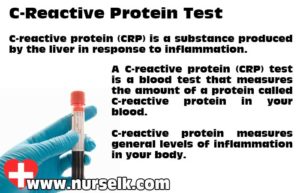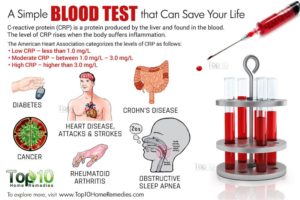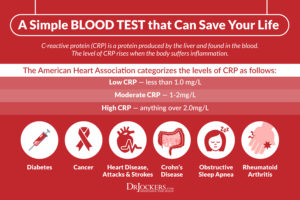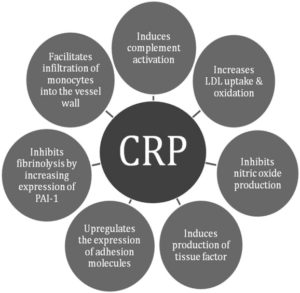



- Heart disease
- Heart attack
- Stroke
- Peripheral arterial disease
C-Reactive Protein & Heart Disease Risk
How Is C-Reactive Protein Measured?
It’s done with a simple blood test. It can be done at the same time your cholesterol is checked.
Your chance of having heart disease is determined based on your test results:
| Test Result | Risk |
| Less than 1.0 mg | Low |
| 1.0-2.9 mg | Intermediate |
| Greater than 3.0 mg | High |
It’s important to note that inflammation due to other things, like an infection, illness, or serious flare-up of arthritis, can also raise CRP levels. So before you get the CRP test, make sure to tell your doctor what other medical conditions you have.
When should I be tested for CRP?
If you’re at moderate risk for heart disease, it may help your doctor figure out if you need more intensive treatment.
Those at high risk should be treated aggressively, anyway. So CRP testing isn’t recommended for them.
The more of these risk factors you have, the higher your risk of heart disease:
- A previous heart attack or stroke
- A family history of heart disease
- High total cholesterol
- Low HDL cholesterol
- High blood pressure
- Being male or a post-menopausal woman
- You smoke cigarettes
- Uncontrolled diabetes or high blood pressure
- You don’t exercise
- You’re obese or overweight
What’s the Treatment for High C-Reactive Protein?
It’s important for everyone to make these lifestyle changes to reduce their chance of having heart disease. It’s especially important if your CRP level is intermediate or high:
- Eat a heart-healthy diet.
- Get your high cholesterol down.
- Keep your weight where it should be.
- Exercise regularly.
- If you have diabetes or high blood pressure, manage it.
- If you smoke or use tobacco in another way, quit.
- If you drink alcohol, do so responsibly.
Taking aspirin may help protect you from heart disease if your CRP is high. By thinning your blood it makes the heart pump easier in doing its job. This puts the heart at less risk of stressing out=lack of oxygen if stressing out=angina (chest pain). Statins, the most commonly prescribed cholesterol-lowering drugs, may reduce your risk of heart disease if your CRP is high. Talk to your doctor about which treatments are best for you.